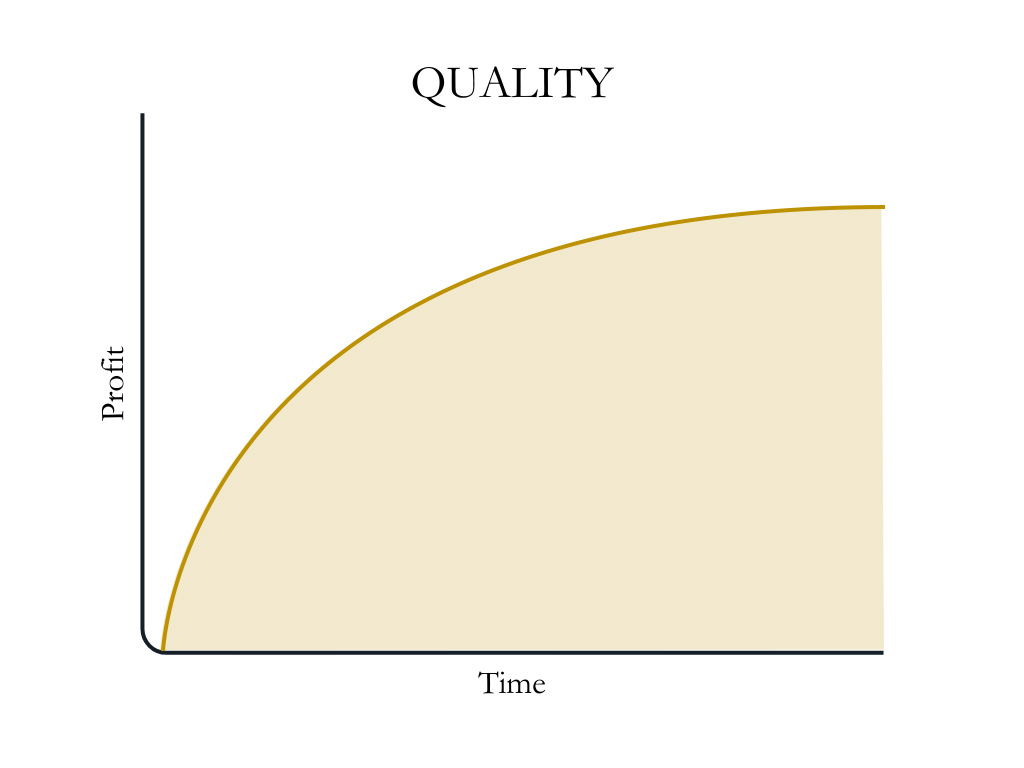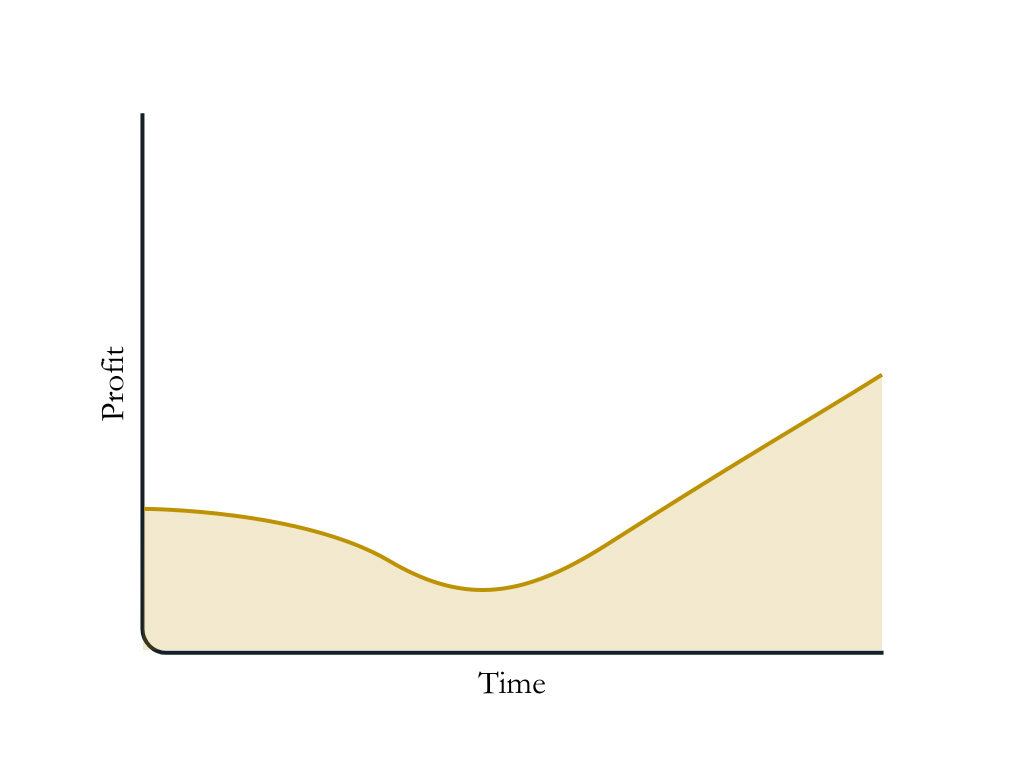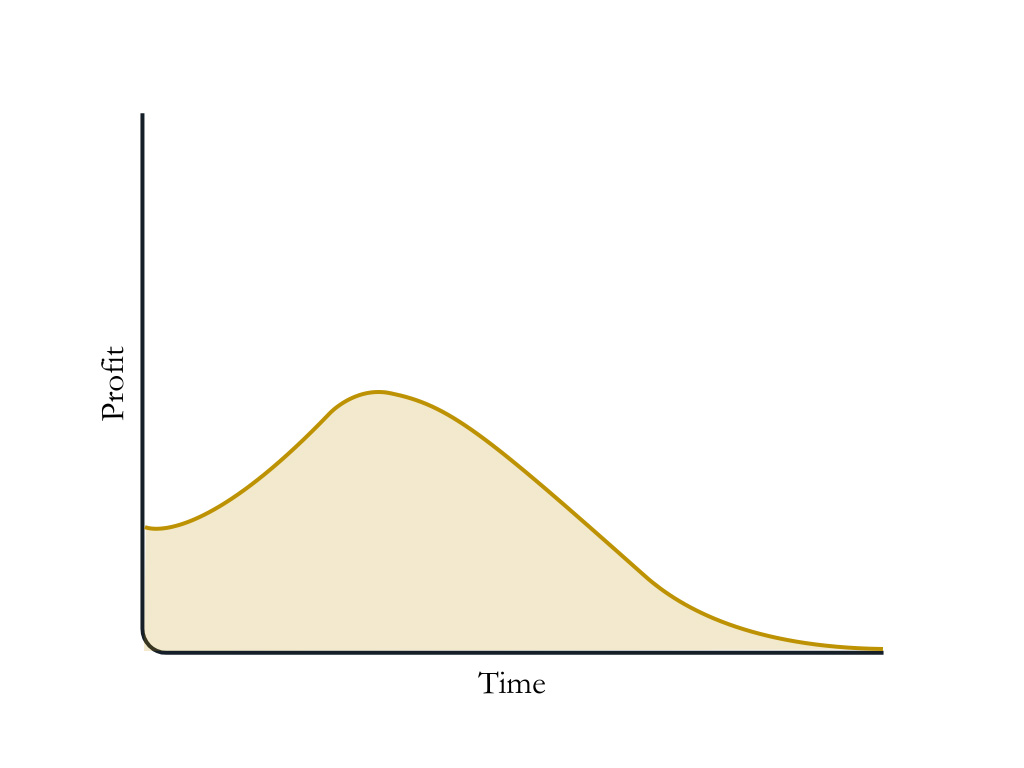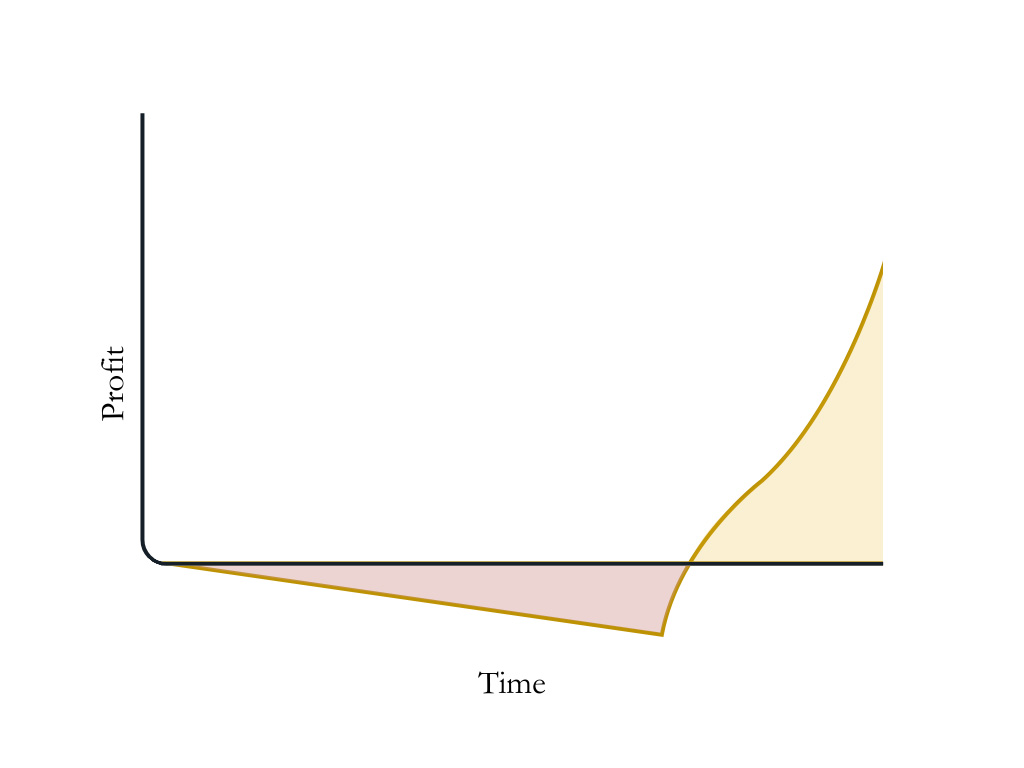What is Quality?
Quality /kwŏl′ĭ-tē/ noun
-
Profit measured over an eternal time horizon and considering all externalities
-
The maximization of human prosperity.
Quality is equal to the integral of profit, measured from zero to infinity.


Quality is cumulative over time.
This is due to Quality’s relationship with capital creation, as capital is created through Quality actions. Capital is the store of previously generated profit into the future. Capital creation, like Quality, is cumulative. After it is created, capital can only be consumed or destroyed through actions that decrease Quality.
As long as profit is positive, Quality will continue to increase.
For further illustration, let’s take a look at a few examples of profit curves (over discrete timeframes) that can occur within a business:
The Results of Quality Actions

Examples
- Investing in better manufacturing practices to reduce yield loss.
- Spending more on R&D for a few years until product quality is improved or new technology is developed.
NOTE: Not necessary to decrease profit before increase.
The Results of Non-Quality Actions

Examples
- Performing layoffs prior to reporting quarterly earnings.
- Cutting costs to appeal to new investors, acquiring companies, etc.
NOTE: Not necessary to increase profit before decrease.
Bonus Example: Start-up Company

A brief etymological note on the calculus terms integral and derivative.
The word integral means essential, vital, or fundamental. This formula implies that Quality is integral to profitability.
Quality is essential to profitability.
Quality is vital to profitability.
Quality is fundamental to profitability.
Profit is a byproduct of Quality.
Profit is a result of Quality.
Profit is derived from Quality.
Opportunity Cost and Externalities

